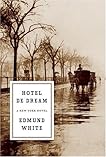The Master and Margarita
Adapted by Edward Kemp
"Love leaped out in front of us like a murderer in an alley leaping out of nowhere, and struck us both at once. As lightning strikes, as a Finnish knife strikes! She, by the way, insisted afterwards that it wasn’t so, that we had, of course, loved each other for a long, long time, without knowing each other, never having seen each other… " — Mikhail Bulgakov
The Strawdog Theatre Company production of The Master and Margarita captures the magic of the original novel and places it on stage for all to see. From the adaptation by Edward Kemp to the direction by Louis Contey, whose work I have previously admired at Timeline Theatre, to the large ensemble of actors required for this amazing production everything came together yesterday afternoon in a most mesmerizing way. While there were many aspects of the production that I enjoyed, the most important aspect for me was the humor demonstrated repeatedly throughout the play -- humor that I did not fully appreciate from my previous reading of the novel. I will soon be rereading the novel and look forward to finding some of that humor which I missed before.
But the real center of the production was the magic, whether literally during the magic show scene or the dramatization of the magical realism of the novel or the magic of the theater that is always there when actors bring a story to life upon the stage. This center was made possible by the way the stories of the Master and Margarita, his play about Pontius Pilate, and the ongoing battles with the brutes and buffoons of the Soviet Bureaucracy were melded and held together through the insightful direction of Louis Contey. Among the actors I was most impressed with the intelligent performance of Ian Maxwell as Pontius and Stravinsky, and with the tongue-in-cheek and almost spritely performance of Danny Taylor as Fagott. Tom Hickey was appropriately magisterial in the Mephistophelean role of Woland and Justine C. Turner was a magical Margarita. The focus of the whole ensemble was successful in creating the magical characters in every scene that this play demanded. Suffused with the aura of Faust's Mephistopheles, this late afternoon of dramatic comedy became an enjoyable dream sequence of magic that reminded me why I love the theater.


























